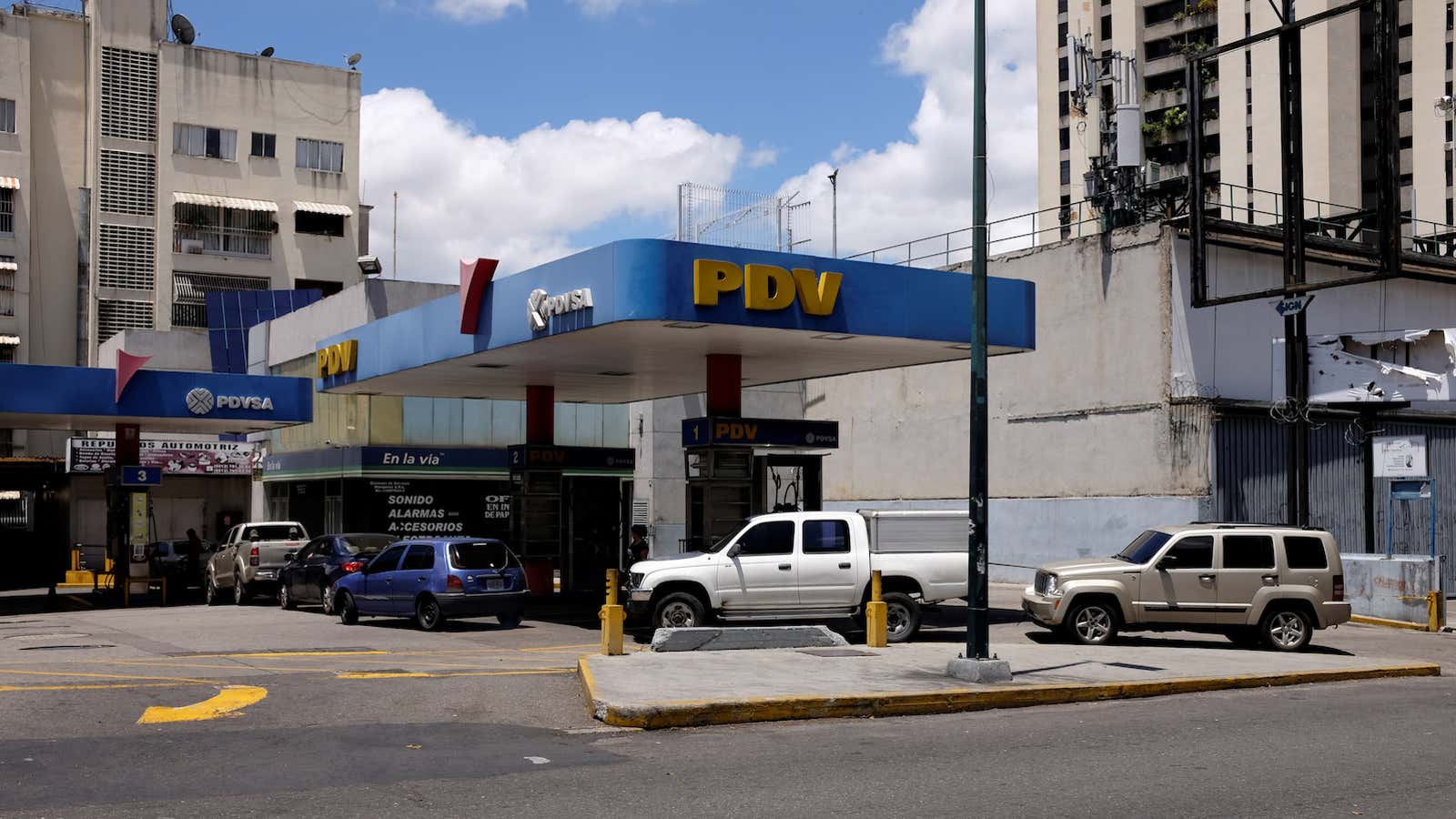In November 2017, after years of an economic crisis that has seen 2 million people flee, Venezuela finally defaulted on its debts. Since then, it has missed more than $5 billion in interest and principal payments on outstanding debt. Yet the country has been making payments on at least one bond.
The Wall Street Journal confirmed (paywall) that Venezuela made a $949-million payment this week on bonds of the state-owned oil company, Petróleos de Venezuela (PDVSA), due in 2020. The bond is partly backed by shares of Citgo, the US refining and gas-station company based out of Houston, Texas that is majority-owned by PDVSA.
Bloomberg has a list of the most plausible theories on why the bond payment was made, including geopolitical machinations with the Russians.
The surprise payment—from a country that suffers from chronic food shortages where people queue for hours—means that PDVSA continues to have Citgo as a buyer for its oil, keeping one of its few sources of US dollars flowing in even though mismanagement has stemmed oil production. Venezuela has the world’s largest oil reserves but output fell by 29% last year—more than Iraq experienced after the US-led invasion in 2003 (paywall).
With this most recent payment, the Journal reported that there is only $1.7 billion left outstanding on the Citgo-backed bond, which means that even if Venezuela defaults, there is enough value in Citgo for bondholders to get their money back. That has led to the strange situations of these 2020 bonds trading at more than 90 cents on the dollar—even though the government that backs them is in default and its economy is a basket case.
In July, with inflation hitting 1,000,000%, Venezuela slashed five zeroes from its currency. The IMF forecasts the economy will contract by 18% this year, its third consecutive year of double-digit GDP declines. Venezuela was also named the most dangerous country to live for the second year in a row.
